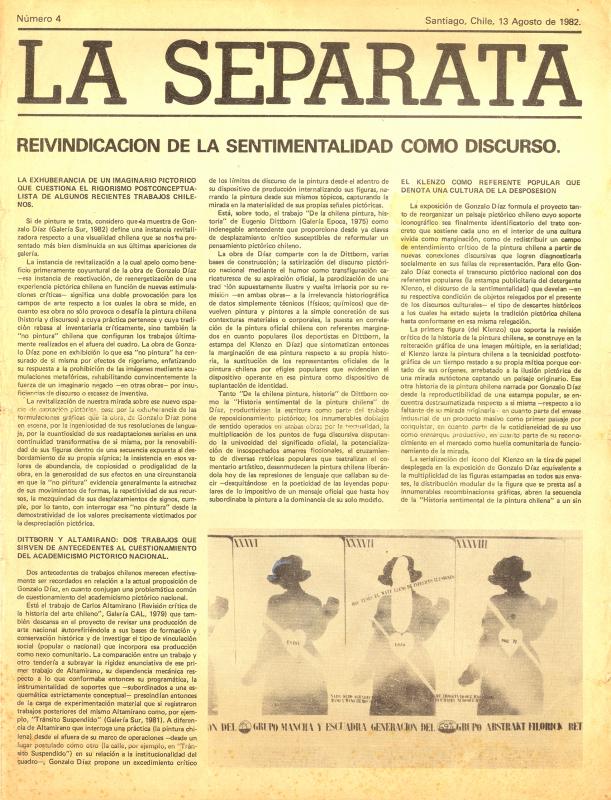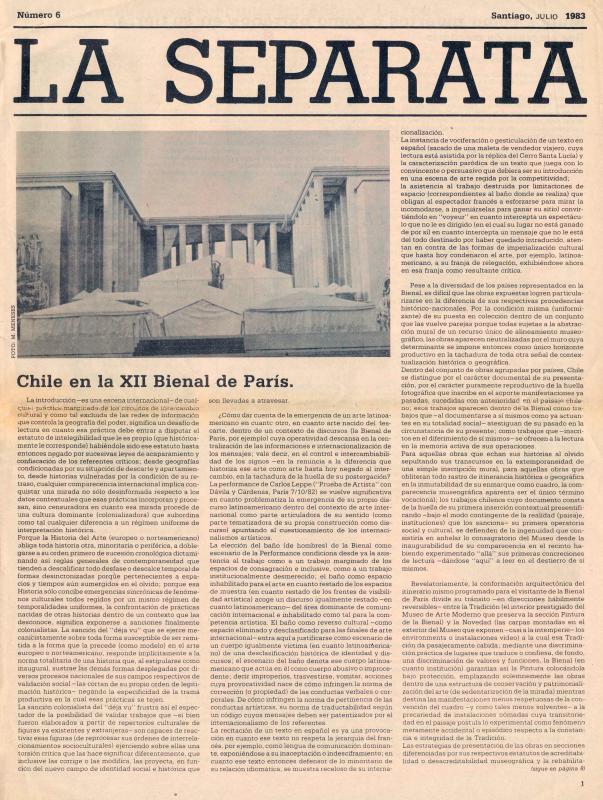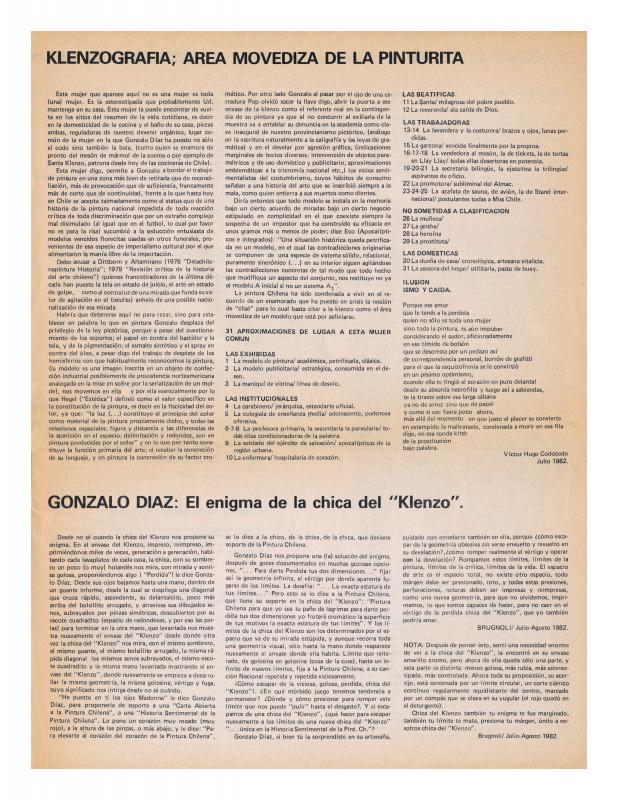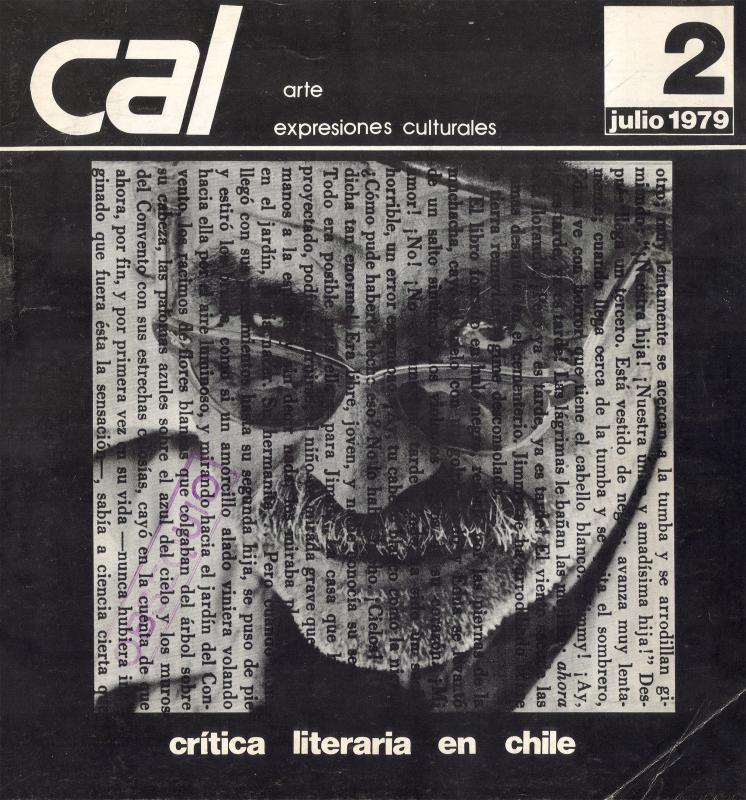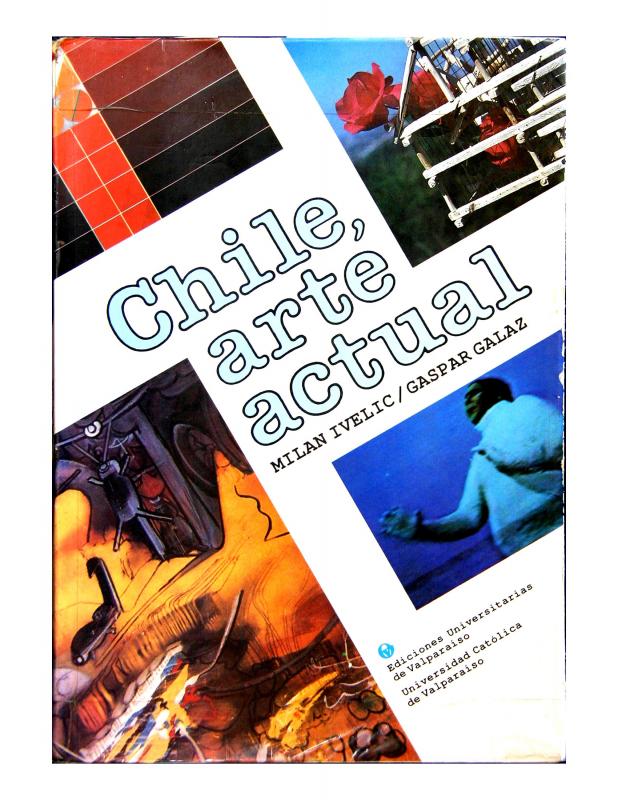“La pintura en Chile de Galaz e Ivelic: una instancia redefinitoria para el arte chileno” is Nelly Richard’s 1981 critical review of La pintura en Chile: desde la Colonia hasta 1981 (Painting in Chile: From the Colonial Period to 1981), the ambitious and wide-ranging book by the art historians Milan Ivelic (b. 1935) and Gaspar Galaz (b. 1941) that was published by the Universidad de Valparaíso. The review appeared in the first issue of La Separata (1981–83), which was coedited by Richard, artist Carlos Altamirano (b. 1954), and sociologist Fernando Balcells (b. 1950), who was a member of CADA (Colectivo Acciones de Arte). The journal provided a forum for a series of debates about art and culture during the dictatorial regime. [See the following texts, also published in La Separata, in the ICAA Digital Archive: (doc. no. 731548), (doc. no. 734895), and (doc. no. 731874).]
In her review the theorist Nelly Richard discusses the history of art’s fundamental problem as she challenges the way tradition was built around painting. [For more on this matter, see: “El arte en Chile: una historia que se recita, otra que se construye” (doc. no. 730164)]. Richard outlines her challenges in these texts and in her analysis of works produced by the Escena de Avanzada, the artists who were committed to a critical revision of the art canon [For more information, see: "Return to the pleasurable" (doc. no. 743686).]
The work of Milan Ivelic and Gaspar Galaz is very important to the visual arts in Chile, since their publications established a narrative about the history of art in the country. In 1983 they adapted their book into the television program Demoliendo el muro [Demolishing the Wall]. Then, in 1988, they published Chile Arte Actual [Chile: Contemporary Art], a sweeping historiographic book about Chilean art that provided a widely read, unifying narrative on the subject. Their books have become essential reading for those interested in a historical revision of Chilean art. [See another text cowritten by Ivelic and Galaz, “La ampliación del espacio crítico” (doc. no. 734883).] It should be noted that Richard’s critical review is part of a much broader discussion about the Escena de Avanzada’s relationship with Chilean institutions under the dictatorial regime, in light of the fact that she did not consider herself to be part of the academic realm they both represented.

